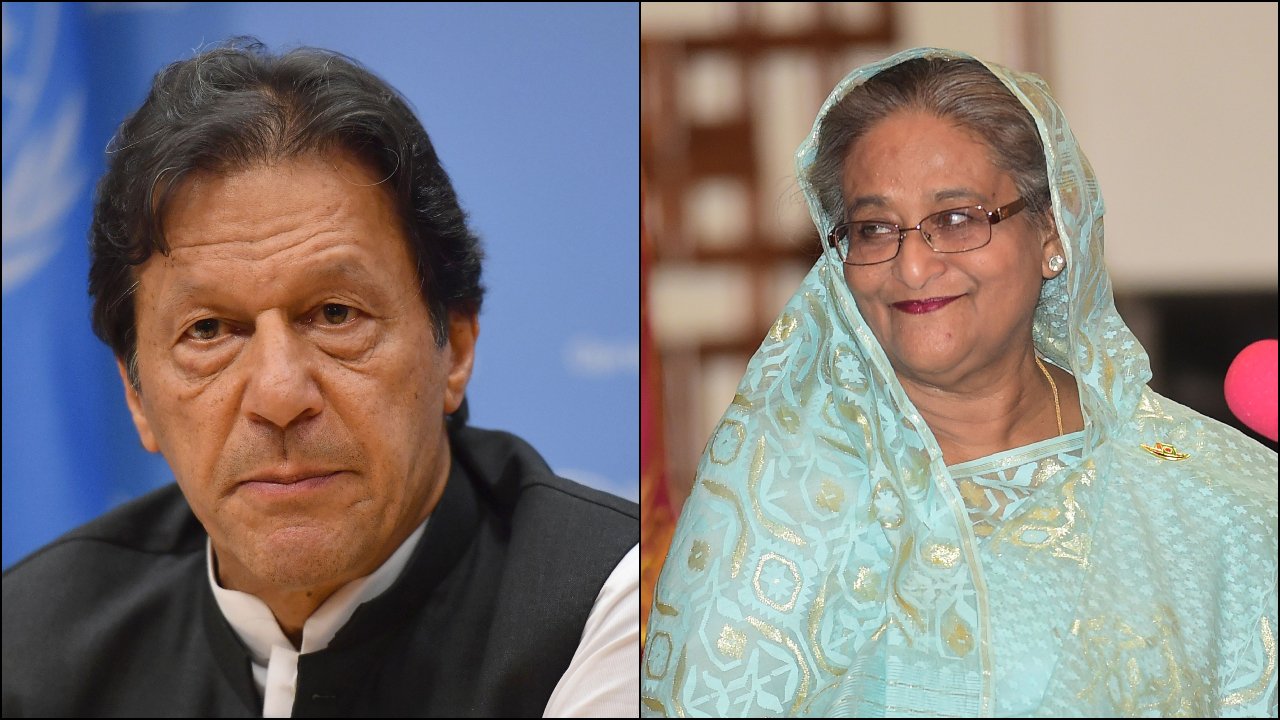
SOURCE: DHNS
A phone call between the Prime Ministers of Pakistan and Bangladesh earlier this week stirred unease in New Delhi, which suspected China’s hidden hand behind the rare outreach.
Pakistan’s Prime Minister Imran Khan called up his Bangladesh counterpart Sheikh Hasina on July 22. A Bangladesh government spokesperson in Dhaka said that Hasina briefed Khan about the Covid-19 pandemic and the flood situation in her country in response to queries from her counterpart.
However, Islamabad sang a different tune, with Khan’s office stating that he also briefed Hasina about Pakistan’s view about the “grave situation” in Jammu and Kashmir. Khan purportedly “stressed the importance of peaceful resolution of the Jammu and Kashmir dispute for a safe and prosperous region”.
But the readout issued by Bangladesh Prime Minister after the phone call did not have any reference to Jammu and Kashmir. For New Delhi, this was of some cold comfort, even though the fact that Hasina did agree to take the call was not lost on New Delhi.
The next day, the MEA in New Delhi appreciated Bangladesh’s “consistent stand” — that the issue of Jammu and Kashmir was an internal matter of India. He also noted that India’s relations with Bangladesh were “time tested and historic”.
New Delhi suspects that Beijing is trying to play the role of a mediator to bring its “all-weather ally” Islamabad and Dhaka closer, leaving behind the five-decade long bitterness, which has its origin in Pakistan Army’s atrocities in erstwhile East Pakistan during the 1971 liberation war that gave birth to Bangladesh.
A source told DH that the phone call indicated a move by Pakistan to reach out to Dhaka, particularly Hasina, daughter of Mujibur Rahman, who had led the struggle for liberation of East Pakistan.
“Dhaka possibly would not have agreed for it unless the push came from Beijing,” said the source.
He pointed out that the rare phone-call between Hasina and Khan happened almost three weeks after Bangladesh Foreign Minister A K Abdul Momen had a meeting with Islamabad’s envoy to Dhaka, Imran Ahmed Siddiqui, on July 1.
Islamabad claimed that Siddiqui and Momen agreed to promote bilateral relations with a forward-looking approach. Momen, however, stressed that Pakistan must formally apologize to people of Bangladesh for the atrocities its soldiers committed during the 1971 war.
Bangladesh is the fourth South Asian country after Nepal, Sri Lanka and Maldives, which China is trying to win over – ostensibly to spread its geo-political influence in the neighbourhood of India.
Even as its People’s Liberation Army (PLA) was engaged in a stand-off with the Indian Army along the disputed boundary between the two nations, China recently brought into effect a zero-tariff policy for 97% of its imports from Bangladesh, allowing the South Asian nation to export to the communist country an additional 5161 items without paying any customs duty.
Beijing is also understood to be in discussion with Dhaka for granting loans to the tune of $ 6.4 billion for several infrastructure projects across Bangladesh.






